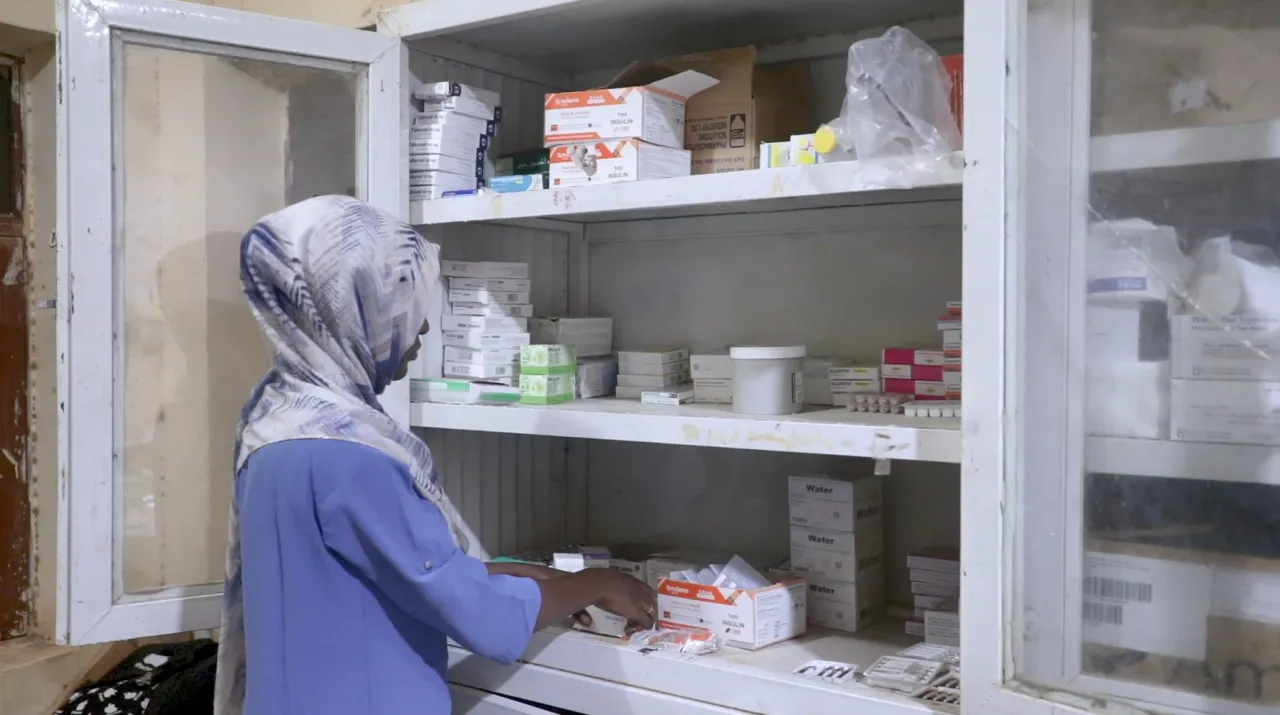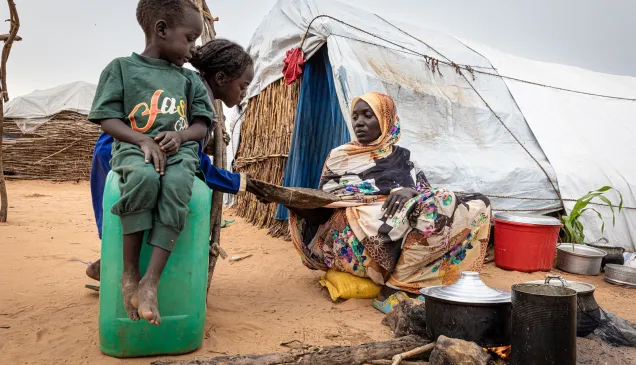Sudan: Delivering life-saving care to support a health system in crisis
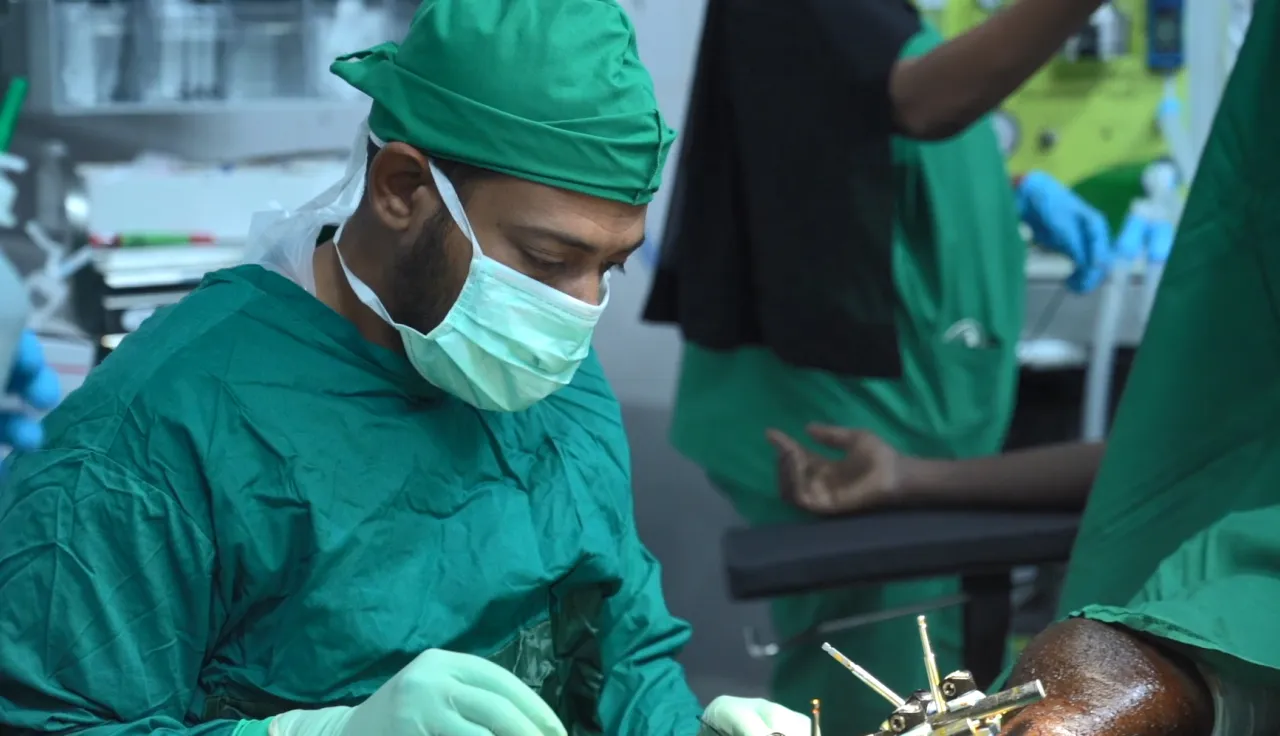
Photo: ICRC
Nearly two years into the armed conflict in Sudan, the country's health system is on the brink of collapse. Health facilities have been attacked or looted, medical personnel displaced, and ambulances blocked or destroyed. The toll on patients and caregivers is staggering.
In many of the conflict-affected regions, around 80% of health facilities have shut down. For thousands of Sudanese people, accessing medical care now means traveling long distances - often through dangerous areas - only to find that hospitals lack doctors, nurses, and even basic supplies.
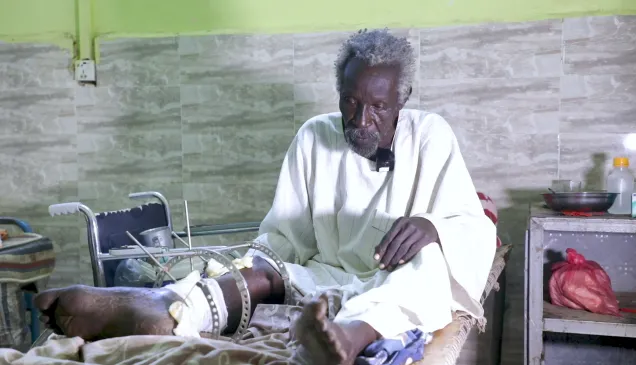
Musa – Patient at Atbara Teaching Hospital in River Nile state
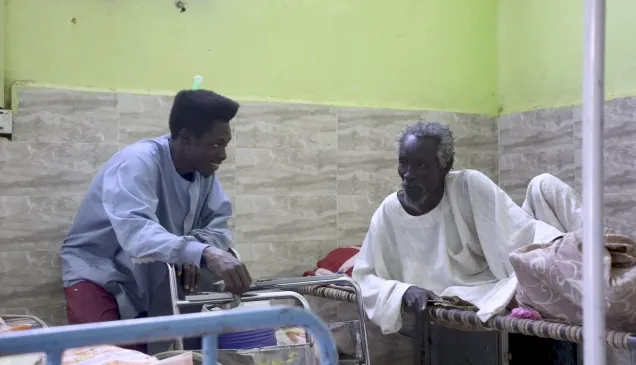
Musa speaks with a member of staff at Atbara Teaching Hospital in River Nile state
Since the start of the conflict, the International Committee of the Red Cross (ICRC) has been working to support the Sudanese health system. In 2023, the ICRC delivered emergency medical supplies to 88 hospitals across the country - supplies that helped treat more than 22,000 people wounded by weapons.
Earlier this year, the ICRC deployed a mobile surgical team to Atbara Teaching Hospital in River Nile state, approximately 300 km north of Khartoum. The team treated over 150 war-wounded patients in just a few weeks. Atbara, a city of about 100,000 people, has received large numbers of displaced families - as well as displaced health workers.
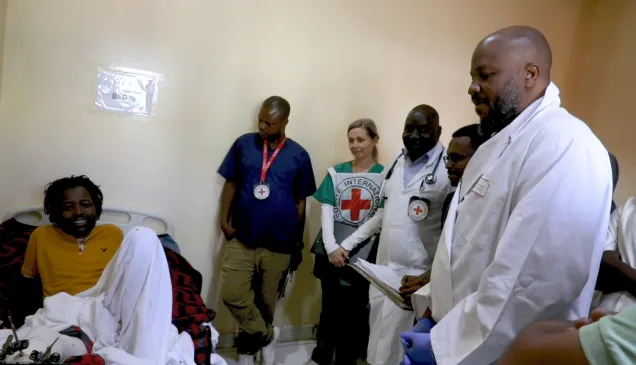
Dr. Maurice Ilboudo consults with a patient and the team at Atbara Teaching Hospital in River Nile state
In many areas, the lack of safe and secure access for medical referrals is another critical obstacle. Patients needing urgent care are often unable to reach it in time.
The ICRC continues to remind all parties to the conflict of their legal obligations under international humanitarian law: medical facilities, transport, and personnel must be protected at all times and allowed to carry out their life-saving work.
As the crisis deepens, the ICRC remains committed to supporting health services and helping those caught in the crossfire.
